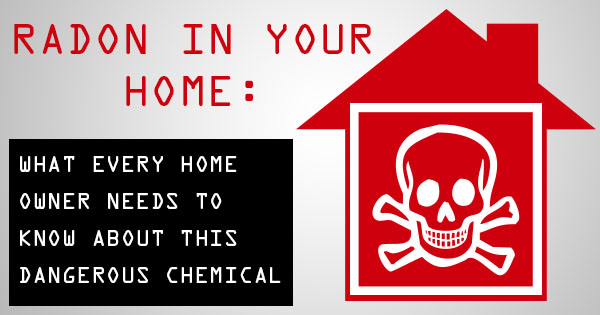
Radon is a chemical element that occurs naturally as a decay product of radium. This element is the second leading cause of lung cancer in the United States, and poses a danger to Americans nationwide as it is odorless and colorless. Here is everything any homeowner needs to know about radon in order to stay protected in your home.
What is radon?
In simple terms, radon is a toxic gas that you cannot see, taste, or smell. When inhaled into the lungs, it can damage your DNA and has the potential to increase your cancer risk.
Where does radon come from?
Radon forms when the uranium in water, soil, and rocks breaks down and settles into the soil around your home. The gas can then enter your home through cracks in your walls, gaps in flooring, warm air rising indoors, the wind blowing outside, fireplaces and furnaces, well water, and exterior air vents.
What homes are more susceptible to radon?
According to the EPA, about one in every 15 U.S. homes has a high level of radon. However, certain geographic levels are more likely to be impacted including the Northeast, Appalachia, and the Midwest. Typically, coastal areas tend to have lower levels.
What level of radon is too high?
If the levels in your home reach or exceed the 4 pCi/L level, you should find a local radon testing contractor as soon as possible.
Home radon testing and radon abatement
Testing for radon is the only safe way to know your home’s radon levels. There are two different types of detection, short-term and long-term. Short-term detectors measure radon levels for two days, while long-term devices determine the average concentration for more than 90 days. However, it is important to go to a professional radon testing company to ensure the testing is done accurately.
Radon removal
The removal of radon from your home is done through a process of mitigation, and is accomplished through air ventilation. For radon in water, professionals use aeration or activated charcoal for removal. Keep in mind that once the radon is removed, it is crucial to have regular testing performed to ensure your home is still safe.
Breathe safely in your home by contacting the radon abatement and mitigation professionals at Affordable Radon Colorado today.

Recent Comments